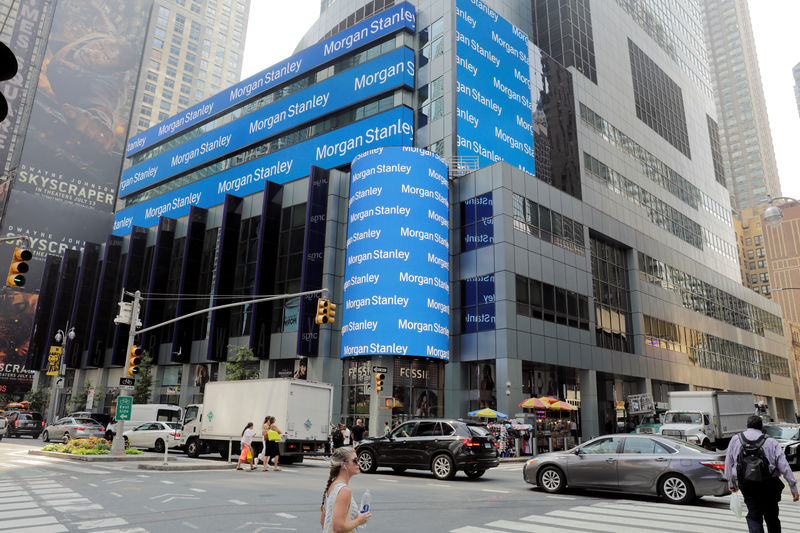By Anirban Sen and Elizabeth Dilts Marshall
(Reuters) - Morgan Stanley (N:MS) capped quarterly earnings from big U.S. banks with a higher-than-expected profit on strength in bond trading and M&A advisory, easing concerns that market turmoil would weigh on banks' Wall Street-related businesses.
The bank's shares rose 4% in premarket trading on Thursday as its investment banking revenue outperformed those of its main rival Goldman Sachs (N:GS), which reported a hit from its soured investments in Uber (N:UBER) and WeWork.
Morgan Stanley also booked losses from its investments in the IPO market, but M&A advisory and fixed income underwriting more than made up for the shortfall.
The big U.S. banks largely beat subdued expectations in a quarter that was overshadowed by trade tensions and worries of an economic slowdown that forced the U.S. Federal Reserve to cut interest rates twice.
"We delivered strong quarterly earnings despite the typical summer slowdown and volatile markets," Chief Executive Officer James Gorman said.
Gorman, however, added that he remained cautious given the ongoing trade talks between the United States and China and low interest rate environment.
KBW equity analyst Brian Kleinhanzl said the bank's results were better than expected as revenue for each business beat the brokerage's forecasts.
Net income attributable to the company rose marginally to $2.17 billion, or $1.27 per share, in the quarter. Net revenue inched up to $10 billion from $9.9 billion.
Analysts were expecting a profit of $1.11 per share on revenue of $9.6 billion, according to IBES data from Refinitiv.
Overall sales and trading revenue rose 10%, driven mainly by a 21% jump in fixed-income sales and trading revenue.
Revenue from investment banking, which includes advising on deals and helping corporations raise money, rose 4.3% to $1.64 billion.

However, Morgan Stanley, which will handle Airbnb's much-awaited debut next year, swallowed heavy losses from stakes in companies that went public. Investment revenue plummeted to $33 million from $340 million a year ago.